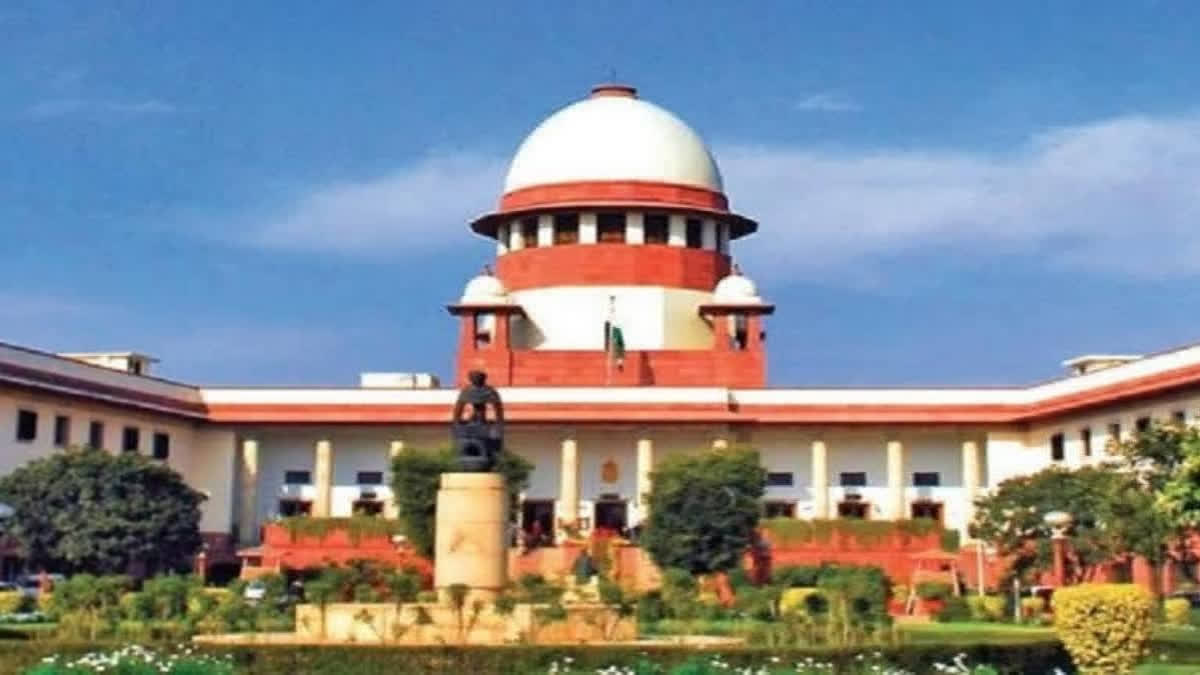New Delhi: For 25-year-old Pranav Srinivasan, who was born in Singapore in 1999, to an India-born couple, who adopted citizenship of Singapore on December 19, 1998, the journey to resume Indian citizenship has been tedious and challenging. Undeterred by the rejection of his application for a grant of citizenship by the Ministry of Home Affairs, Pranav fought a long legal battle in Madras High Court, which he won, but could not secure a win in the Supreme Court.
The Supreme Court dismissed his plea saying that the court will have to be very circumspect when it comes to the exercise of power under Article 142 for the grant of citizenship of India to a foreign national, but did not shut all doors on his desire to become an Indian citizen. The apex court said Pranav, whose grandparents were born in Tamil Nadu, can apply for Indian citizenship provided he is an ordinary resident of India for 12 months immediately preceding the date of application.
In a significant judgment delivered on Friday, a bench comprising Abhay S Oka and Augustine George Masih said citizenship of India cannot be conferred on foreign citizens by doing violence to the plain language of the Citizenship Act, 1955.
Pranav's parents acquired Singapore citizenship on December 19, 1998, before his birth when he was in the womb. Immediately after the voluntary acquisition of Singapore citizenship, Pranav’s parents ceased to be citizens of India. However, Pranav, within three months of attaining majority, on May 5, 2017, declared his intention to resume Indian citizenship. The Ministry of Home Affairs by the order dated 30th April 2019, held that Pranav was not eligible for resumption of citizenship under Section 8 (2) of the 1955 Act.
The apex court said: “The language used in the provisions of the 1955 Act is plain and simple. Hence, the same should be given ordinary and natural meaning”. “Moreover, we are dealing with a law which provides for the grant of citizenship of India to foreign nationals. There is no scope to bring equitable considerations while interpreting such a statute”, said Justice Oka, who authored the judgment on behalf of the bench.
The apex court said the view taken by the high court was completely erroneous as the high court held that Pranav had resumed Indian citizenship under sub-section (2) of Section 8 of the 1955 Act. The apex court said Section 8(2) will apply only if the minor child's parents had voluntarily renounced citizenship by making a declaration.
The bench said it is not in dispute that Pranav's parents acquired Singapore citizenship on 19th December 1998, before his birth when he was in the womb. Therefore, immediately after the voluntary acquisition of Singapore citizenship, Pranav’s parents ceased to be citizens of India by the operation of Section 9(1), it said.
“Therefore, there was no occasion for Pranav’s parents to renounce their citizenship on 20th April 2012 by the mode provided under Section 8(1) as they had already ceased to be citizens of India on 19th December 1998 when they voluntarily acquired the citizenship of Singapore”, said Justice Oka.
The bench noted that some arguments were made, by Pranav’s counsel, that this court should exercise its extraordinary jurisdiction under Article 142 of the Constitution of India. Article 142 of the Constitution is a provision that empowers the Supreme Court to pass any decree or order necessary for doing complete justice.
The bench said the power under Article 142 is an extraordinary power which should be exercised to deal with exceptional circumstances. “We do not think that this case warrants the exercise of power under Article 142 of the Constitution of India. This Court will have to be very circumspect when it comes to the exercise of power under Article 142 for the grant of citizenship of India to a foreign national”, said Justice Oka.
Leaving an option open for Pranav, Justice Oka said Pranav can apply for Indian citizenship provided he is an ordinary resident of India for twelve months immediately preceding the date of application.
"There is a power to relax the period of 12 months vested in the central government if it is satisfied that special circumstances exist. That is the provision in subsection (1A) of Section 5 of the 1955 Act. We may note here that it is not the case made out that Pranav fulfils the criteria in clause (g) of Section 5(1) of the 1955 Act," said Justice Oka. The apex court allowed an appeal filed by the central government against an order passed by the Madras High Court.
“Appeal is allowed. Writ Petition (C) No.123 of 2024 is dismissed. However, this judgment will not preclude Pranav from applying for citizenship by invoking clause (f) of sub-section (1) of Section 5 of the 1955 Act. It will also be open for him to apply to the Central Government for the exercise of power under sub-section (1A) of Section 5 of the 1955 Act of relaxation of the period of twelve months provided in clause (f) of sub-section (1) Section 5 of the 1955 Act”, said the apex court.
Read more: Chidambaram Temple Diksitas Not Above God; Don't Act Arrogantly: Madras High Court



